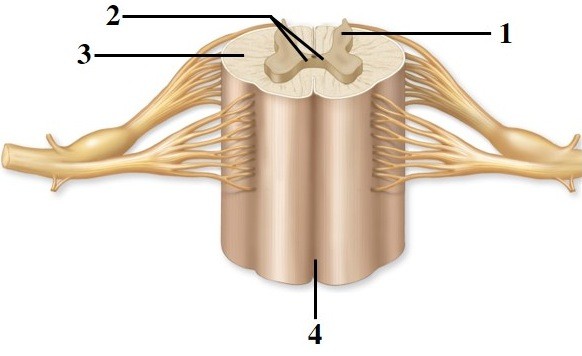The pulmonary vein
A. carries oxygen-rich blood toward the body tissues.
B. carries oxygen-poor blood to the lungs.
C. receives oxygen-poor blood from the body tissues.
D. carries oxygen-rich blood from lungs to the left atrium.
Answer: D
You might also like to view...
Extension decreases the angle between two bones.
Answer the following statement true (T) or false (F)
Neuron A is excitatory to neuron B. Describe three ways that the nervous system might prevent neuron B from experiencing an action potential
What will be an ideal response?
Lymph movement is assisted by
A. contraction of skeletal muscle. B. pressure changes in the thorax during respiration. C. compression of lymphatic vessels. D. contraction of smooth muscle in lymph vessel. E. All of the choices are correct.
 This figure shows a cross section of the spinal cord. What structure does number 1 indicate?
This figure shows a cross section of the spinal cord. What structure does number 1 indicate?
A. Posterior horn B. Posterior funiculus C. Gray commissure D. Anterior horn E. Lateral horn